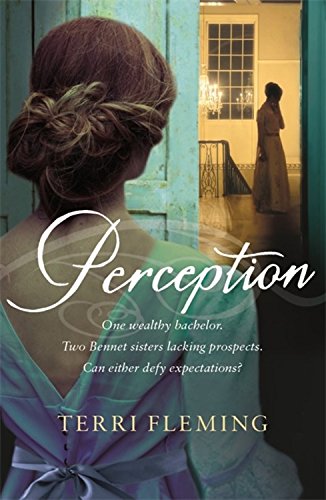Perception
Let’s face it: Elizabeth Bennet had all the luck. Not so poor, plain Mary, left languishing in Longbourn by Jane Austen, destined to play the piano (badly) forever. But wait—in this surprisingly deft novel, Mary is rewarded with her own book-loving soul mate, in a most satisfying way. Oh, and also a personal fortune! Terri Fleming is in complete command of her era, borrowed characters and settings, yet creates a fresh “sequel” with skill and panache. Mary is utterly credible, and we feel so guilty for dismissing her as a figure of fun in the original novel. She emerges as a sensitive bluestocking, acutely aware of her social shortcomings and doggedly determined to stay true to her own high values.
All the usual social and cultural ingredients of a Jane Austen novel are here: the importance of money and inheritance, eligible young gentlemen, balls and parties, revealing letters, proposals, confusion of individual perceptions, and characters who reveal their moral compass through their words and actions. Fleming has constructed her dialogue to have be reminiscent of Jane Austen, but it also has a pace and freshness appealing to modern readers. She writes with warmth and humour. Kitty Bennet is also fleshed out in a clever way; her hoydenish excesses fade, and the two sisters end up recognising each other’s worth. Kitty has enough sense to avoid becoming a second Lydia, sets herself upon a course of personal improvement, and bags herself a title.
The last few years have produced many entertaining Austenesque offshoots, involving vampires, zombies, murders and updated re-tellings. Perception is a quietly likeable addition to the canon. Don’t expect English Literature, but do enjoy a couple of hours of happy escapism back in the world of Longbourn and Meryton.










